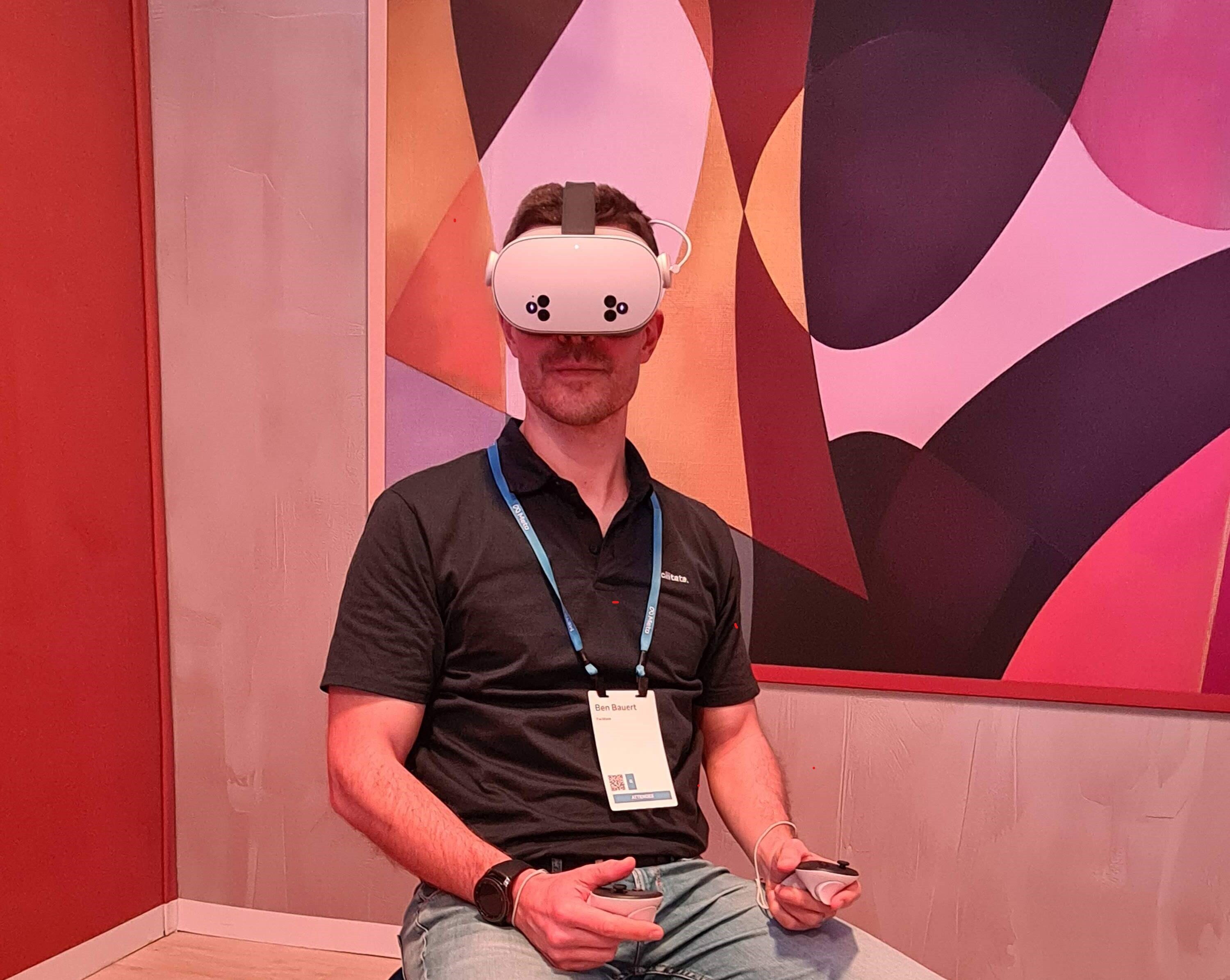Insights from Meta Connect 2024: The Future of Immersive VR in Industrial Training

Last week, I attended Meta Connect 2024 in Menlo Park, California, where Meta revealed a number of innovations that have direct implications for immersive technology's role in industrial training. As CEO of Facilitate, a leading VR-based training platform, I found Meta's announcements directly relevant to the future of training for industrial organizations. Here’s a breakdown of my key highlights and how they will impact training creators.
Meta Quest 3S: Enhanced Realism for Training Environments
One of the most exciting announcements was the official launch of the Meta Quest 3S headset. Designed as a more cost-effective headset compared to the Quest 3 but a significant step up from the Quest 2, the 3S has impressive resolution, the same processor used in the Quest 3, and a more ergonomic build, this headset represents a significant leap forward in VR hardware. I loved the highly breathable mesh surroundings that kept my face cool for an enjoyable 45 minute demo session. For industrial training, the Quest 3S offers an overall level of quality and affordability that provides an unparalleled level of scalability. I can easily see this device as being a fantastic offering for many of our customers across mining, energy, logistics, aviation, and beyond.
This hardware upgrade directly aligns with our work at Facilitate. Our platform is designed to deliver high-fidelity, interactive training modules that simulate complex industrial environments and procedures. Imagine guiding trainees through virtual machinery operation or emergency response drills that are so lifelike they evoke real-world pressure and decision-making. This level of engagement not only speeds up the learning process but also improves retention and on-the-job performance. And, with the cost-effective pricing of the Quest 3S, this value can be brought to a number of trainees that would have previously been unheard of.
Orion AR Headset Prototype: Blending the Real and Virtual Worlds
Meta also provided a first look at its Orion AR headset prototype, marking an exciting advancement towards the next level of mixed reality experiences. The Orion headset allows users to interact with both virtual and physical objects seamlessly. This technology can revolutionize industrial training by providing augmented instructions overlaid onto real-world machinery, allowing trainees to practice procedures directly on the equipment they will use in their day-to-day roles.
Facilitate has been keenly observing AR advancements, and the Orion prototype indicates a future where training can be conducted within an actual work environment while benefiting from virtual guidance. With Orion, industrial organizations can facilitate (pun intended!) on-the-job learning, using the headset to provide step-by-step virtual instructions, safety guidelines, and real-time feedback. This integration of digital information into the physical workspace creates a more effective and practical training experience, resulting in better-skilled and safer workers.
Hyperscape AI: Scanning and Recreating Real-Life Spaces in VR
One of the most groundbreaking developments at Meta Connect 2024 was the early release of MetaHorizon Hyperscape. Hyperscape's ability to scan and explore real-life spaces within a VR environment. Hyperscape lets users scan physical rooms and recreate them virtually. This capability has significant implications for industrial training, allowing organizations to bring actual workspaces into the virtual realm for immersive learning experiences.
For example, industrial companies can now scan areas like factory floors, warehouses, or operational sites, and use these highly accurate virtual replicas for training purposes. Trainees can explore and interact with these spaces in VR, gaining familiarity with the environment without needing to be physically present. This is particularly valuable for onboarding new employees or conducting safety drills in potentially hazardous settings. At Facilitate, we see significant applications incorporating this technology into the creation of interactive location-based training for skill development, all within a safe, virtual environment.
Expanding Beyond Training: Real-Time Collaboration and AI Integration
Meta Connect also touched on real-time video features and AI upgrades for Ray-Ban Meta smart glasses, highlighting Meta's drive for a more connected and collaborative future. These smart glasses now feature live video streaming capabilities, offering a glimpse at potential future uses for remote training and support. Imagine trainees in the field wearing these glasses, while off-site experts guide them through procedures in real-time, creating an effective remote training solution that saves time and resources.
In Conclusion: The Next Chapter for Industrial Training
Meta Connect 2024 made it clear that we are on the brink of a new era in immersive technology and its impact on industrial training. The Meta Quest 3S headset sets a new standard for scalability, the Orion AR prototype hints at a seamless blend of digital and physical training environments, and Hyperscape AI offers unprecedented ease for the creation of virtual spaces and digital twins.
At Facilitate, we’re eager to incorporate these advancements into our platform, empowering training creators within industrial organizations to push beyond traditional methods. As we leverage these new tools, our goal remains the same: to empower industrial organization that struggle with high risk, expensive, unscalable and ineffective training that relates to their sites (ie, tours, inductions, hazards, and safety) and their procedures (ie, technical equipment training and emergency procedures).
We look forward to collaborating with you, the innovative learning leaders, to explore the full potential of these technologies. Together, we can shape the future of industrial training and take immersive learning to new heights. The journey has just begun, and the future looks incredibly promising.
